Refine search
Actions for selected content:
8 results in Medieval English Theatre
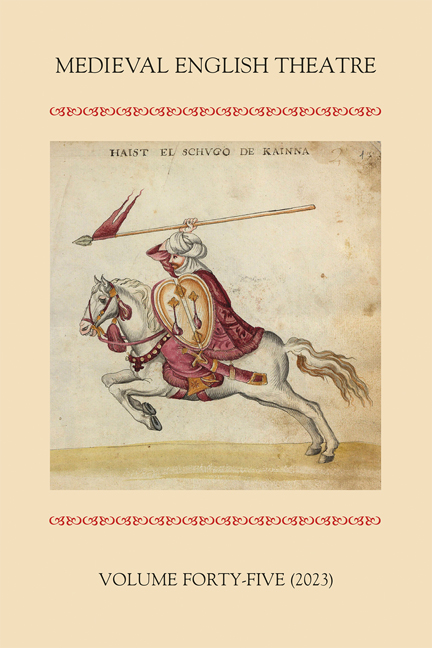
Medieval English Theatre
-
- Published by:
- Boydell & Brewer
- Published online:
- 08 May 2024
- Print publication:
- 25 June 2024
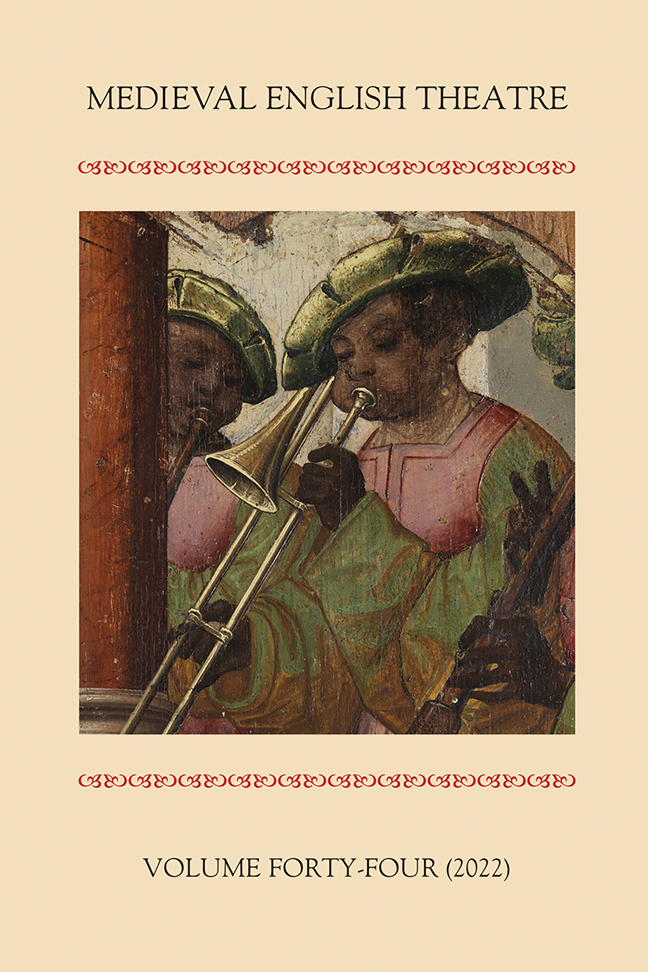
Medieval English Theatre 44
-
- Published by:
- Boydell & Brewer
- Published online:
- 10 January 2024
- Print publication:
- 13 June 2023
-
- Book
- Export citation
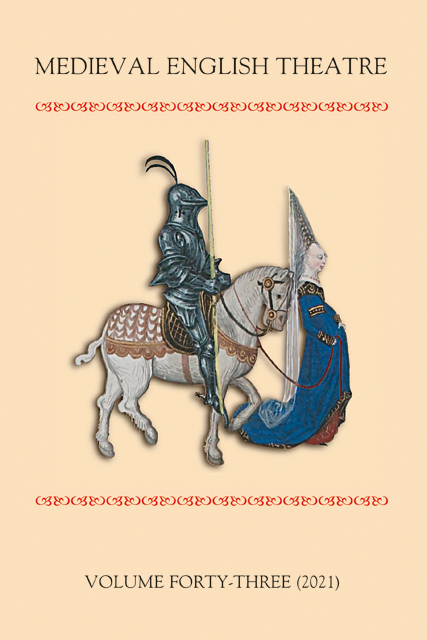
Medieval English Theatre
-
- Published by:
- Boydell & Brewer
- Published online:
- 20 December 2023
- Print publication:
- 06 May 2022
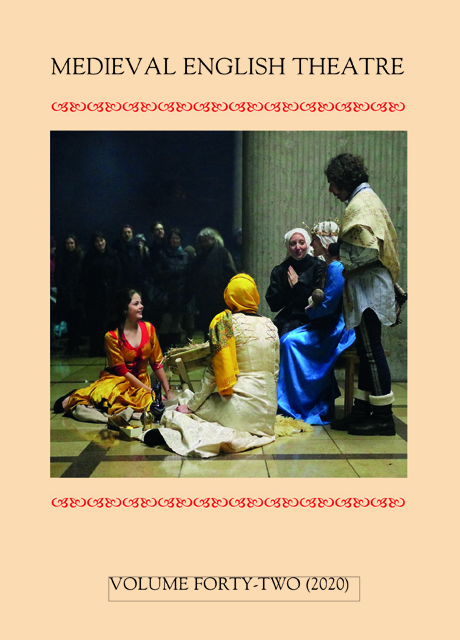
Medieval English Theatre 42
- Religious Drama and Community
-
- Published by:
- Boydell & Brewer
- Published online:
- 17 January 2023
- Print publication:
- 21 May 2021

Medieval English Theatre 40
-
- Published by:
- Boydell & Brewer
- Published online:
- 31 August 2019
- Print publication:
- 19 April 2019
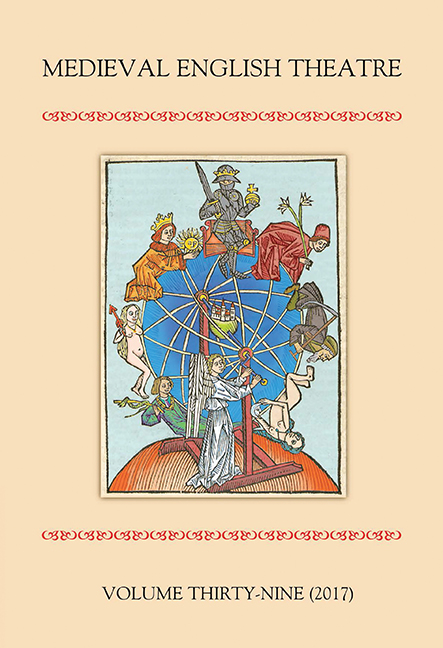
Medieval English Theatre
- Stagecraft, Performance, Reception
-
- Published by:
- Boydell & Brewer
- Published online:
- 17 July 2019
- Print publication:
- 15 June 2018
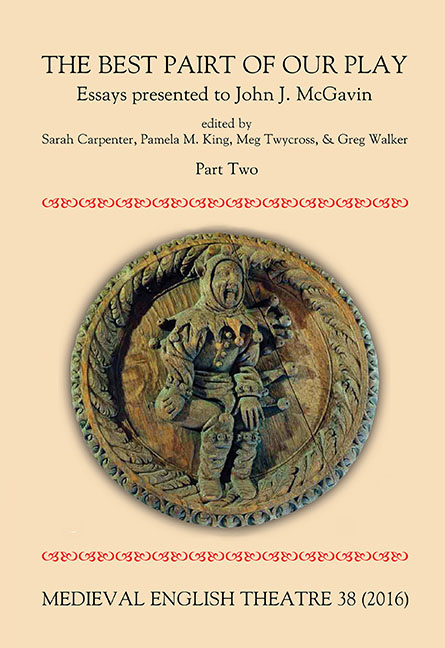
Medieval English Theatre 38
- The Best Pairt of our Play. Essays presented to John J. McGavin. Part II
-
- Published by:
- Boydell & Brewer
- Published online:
- 20 April 2017
- Print publication:
- 18 February 2017
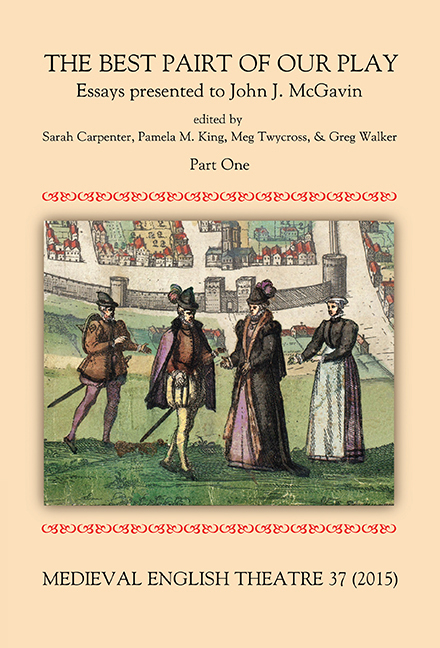
Medieval English Theatre 37
- The Best Pairt of our Play. Essays presented to John J. McGavin. Part I
-
- Published by:
- Boydell & Brewer
- Published online:
- 05 March 2016
- Print publication:
- 19 November 2015
